MercoPress. South Atlantic News Agency
Tag: Mariano Rajoy
-
Wednesday, June 8th 2016 - 07:49 UTC
Spanish Socialists could be knocked out to third place in 26 June repeat election
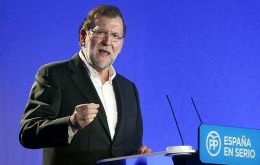
Spain's anti-austerity party Podemos and its allies could leapfrog the Socialists in this month's repeat general election to become the country's main opposition, three polls released over the weekend.
-
Thursday, May 5th 2016 - 11:57 UTC
Spanish elections campaign for a new parliament takes off 10 June
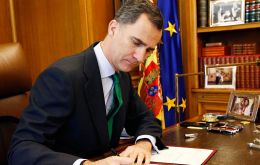
Spain's King Felipe VI signed the decree dissolving parliament following December's inconclusive general election. As no political parties were able to coalesce their support into a coalition government in time for the deadline, new elections will be held on June 26.
-
Thursday, April 28th 2016 - 07:11 UTC
Spain remains ungovernable: elections for new government on June 26
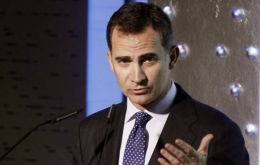
Spain will hold a repeat of national elections in June following the failure of a last-ditch effort by King Felipe VI to prod bickering Spanish politicians to form a new government. The King chose not to ask any candidates he interviewed this week to try to form a government and break a stalemate that has left Spain with a caretaker government in the wake of inconclusive elections in December.
-
Thursday, January 14th 2016 - 06:33 UTC
Socialist becomes Spain's parliament speaker; no agreement yet on new government
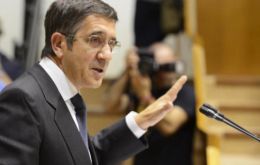
Spain's parliament held its first session Wednesday, with lawmakers from four main parties taking their seats at a time of political turmoil. Lawmakers picked a Socialist, Patxi Lopez, a former head of the regional government of the northern Basque Country, as parliamentary speaker, in the first pact between rival parties still engaged in talks to form a government since last month's inconclusive election.
-
Monday, January 11th 2016 - 14:13 UTC
Agreement in Catalonia puts more pressure on Madrid for a grand coalition

A fiercely secessionist leader was elected president of the wealthy region of Catalonia thanks to a last-minute show of unity, giving fresh impetus to attempts to break away from Spain after months of infighting. The appointment of Carles Puigdemont, just hours before a deadline which would have forced fresh regional elections, drew an immediate rebuke from Spanish Prime Minister Mariano Rajoy.
-
Thursday, December 31st 2015 - 08:35 UTC
Spain's Socialists rules out any partner that supports Catalonia independence referendum
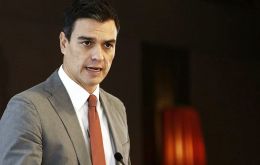
Spain's Socialist party ruled out forming a new government with any party that supported a referendum on independence in Catalonia, a stand that prolongs political uncertainty after this month's inconclusive national election.
-
Thursday, December 24th 2015 - 08:08 UTC
Italy's PM Rienzi looks to Spain and warns about the results of austerity in political systems

After Spain's elections on Sunday left the ruling Popular Party and president Mariano Rajoy well short of an absolute majority, Italian Prime Minister Matteo Renzi argued this showed Europe does not want austerity, and those who apply them, even successful, are knocked out politically.
-
Thursday, December 24th 2015 - 07:55 UTC
Socialists reject Rajoy's offer to join a PP government, but all parties want to avoid new elections in two months

Spanish Prime Minister Mariano Rajoy suffered a first major setback in his bid to stay in office as the Socialists refused Wednesday to back his attempt to form a new government following an inconclusive general election. Rajoy's conservative Popular Party won the most ballots in Sunday's vote but lost its absolute majority in the 350-seat lower house of parliament, taking just 123.
-
Monday, December 21st 2015 - 07:14 UTC
Spain's left-right draw ends two-party system and marks time of coalitions
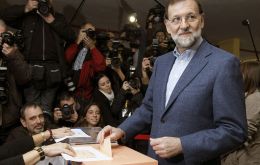
Spain is heading for a period of difficult coalition-building after Sunday’s elections in which Prime Minister Mariano Rajoy's conservatives came first, but were far short of a majority and with no obvious coalition partner after the centrist Ciudadanos (Citizens) did worse than expected, finishing fourth.
-
Saturday, December 19th 2015 - 02:43 UTC
Rajoy rejects the idea of a grand coalition, German style, after Sunday's vote
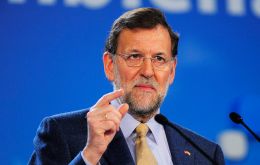
Spanish Prime Minister Mariano Rajoy on Friday rejected any idea of his ruling Popular Party (PP) trying to form a grand coalition with the main opposition Socialist Party (PSOE) after Sunday's general election, in a bid to stop emerging political forces Podemos and Ciudadanos from entering government.
